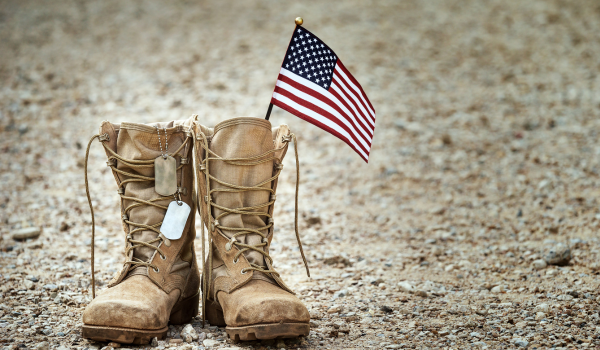What We Know and Don’t Know About Transitioning Veterans
Effective transitioning to student life isn’t just about student success for a Veteran but also helping them succeed after the military. In 2020, St. John’s University’s Robertson and Eschenauer studied 141 Veterans. Their study identified five critical areas as important in supporting and understanding the mindset of transitioning Vets.
- Confidence
- Readiness/Motivation
- Support
- Control
- Decision Independence
Experience in the military revolves around building a soldier’s confidence, but for Veterans, higher education challenges years of training and preparation. Robertson and Eschenauer found this breakdown of confidence is due in part to lacking support structures, a lack of peer connections, general uncertainty about career preparation, and concerns about achieving a school/work/family balance.
While not universally applicable, a 2023 collaborative study between the Department of Veterans Affairs – specifically the VA Pacific Islands Health Care System in Honolulu, Hawaii – and the Department of Applied Psychology and Counselor Education at the University of Northern Colorado, identified six important themes in their research on Veterans and their transition to student life (2023).
- Unreality or surrealness of civilian life
- Dueling narratives: valiant hero vs. pathological menace
- Homecoming as disillusionment or disappointment
- Two universes brushing together
- Alienation and cultural differences
- Precision tools used as blunt instruments
The hard truth is that integrating into college requires the presence of mental health practitioners as much as career counselors and student success staff. The collaborative study provided data showing that the demographics of Veterans transitioning from the military to college skew older, tend to be married or divorced, have children, and most were deployed to a combat zone. There is an increased likelihood that these students suffer from post-traumatic stress disorder (PTSD), brain injuries, or physical disabilities. Overall, there is a tendency to lack a social identity or connections to other students.
Researchers from Fresno State in California indicated we have much to learn about Veteran transitions but highlighted one significant challenge with two keys to successful transitions. First, this 2022 study highlighted that the biggest challenge pivotal to student success is understanding G.I. Bill benefits. A lack of understanding of the benefits or services available to them undermines the confidence of the transitioning student. The two keys to success are helping Veterans understand how their military training and preparedness translate to the classroom and developing communication and socialization pathways for other Veteran students. Developing cohorts and making available services more transparent and accessible are keys to improving retention and attainment among Veteran students, but that is only a starting point.
Green Zone Training
Green Zone training educates students, faculty, and staff about the military and Veteran experience while increasing awareness of the resources specifically available to military personnel on campus. Green Zone training is as important in developing a pervasiveness of empathy across campus as understanding any other way students are unique. Offering faculty, staff, administrators, and students with opportunities to learn more about military life through socialization and open dialog.
Education leaders need to transform the campus attitude from “Thank you for your service,” to “Here’s how we want to thank you for your service.”
References
Mahoney, M. A., Rings, J. A., Softas-Nall, B. C., Alverio, T., & Hall, D. M. (2023). Homecoming and College Transition Narratives of Student Military Veterans [Article]. Journal of College Student Psychotherapy, 37(2), 173-195. https://doi.org/10.1080/87568225.2021.1926034
Villalobos, C. S., & Walsh, N. R. (2022). Impact of a Cohort Model on the American Veteran Transition to College. International Journal of Higher Education, 11(5), 76-86. https://search.ebscohost.com/login.aspx?direct=true&AuthType=shib&db=eric&AN=EJ1356826&site=eds-live&scope=site&custid=s6527200
Robertson, H. C., & Eschenauer, R. K. (2020). STUDENT VETERAN PERCEPTIONS OF COLLEGE-TO-CAREER TRANSITION [Article]. College Student Affairs Journal, 38(1), 52a-62. https://doi.org/10.1353/csj.2020.0003





